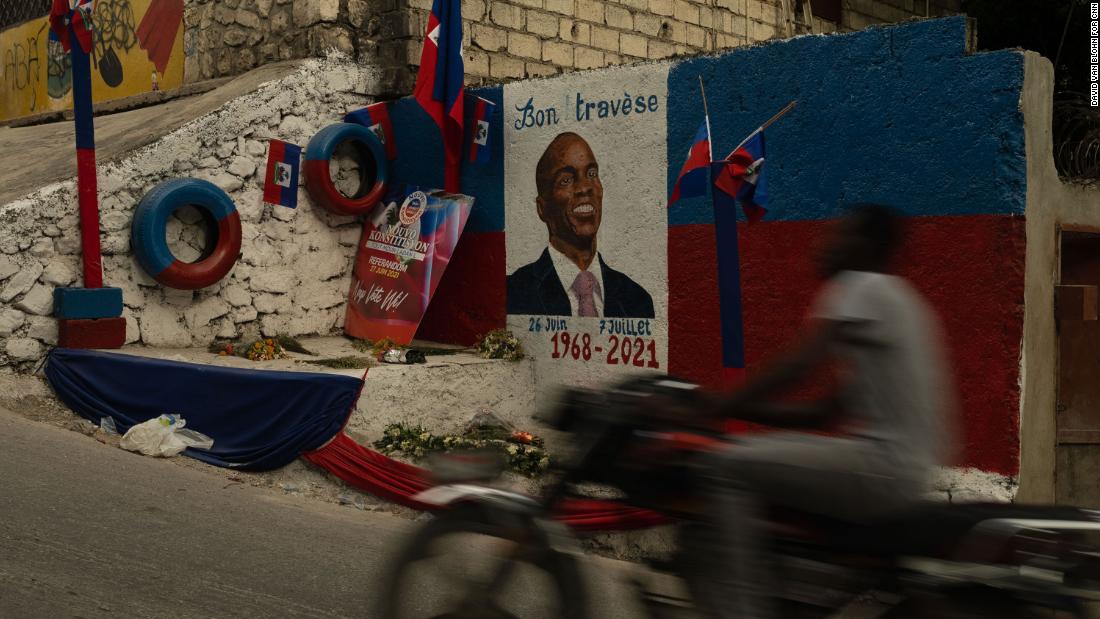Teaching in Prison: ‘You Have to Respect the Rules’
Nigel Poor, co-producer of Ear Hustle, a podcast about life inside San Quentin, discusses the challenges―and rewards― of instructing individuals locked behind bars.

Even before I started covering college programs in prisons, one of my favorite podcasts was Ear Hustle, which focuses on life inside San Quentin State Prison in the Bay Area.

Nigel Poor. Photo by Eddie Herena
When I found out that Nigel Poor, one of the co-producers of Ear Hustle, first got involved with San Quentin as a volunteer professor, I reached out to talk about her experience teaching in prison.
In addition to her work with Ear Hustle, Poor is a visual artist and photography professor at California State University-Sacramento. She started teaching a history of photography class with the Prison University Project, now known as Mount Tamalpais College, at San Quentin in 2011.
Poor says that the stories she heard from the men inside San Quentin inspired her to think about how to do artistic projects inside, and she began to volunteer with the prison’s media lab. All of that eventually led to her collaboration on Ear Hustle. She co-hosts the podcast with Earlonne Woods and Rahsaan “New York” Thomas.
This interview has been edited for length and clarity.
Read the full interview here.
CHARLOTTE WEST: You mentioned that your conversation with the Prison University Project director Jody Lewin helped you feel prepared to teach in prison. What do you think are some of the misconceptions that people might have about prison education?
NIGEL POOR: I think people have misconceptions, first of all, that they’re going to go into this really angry space where people aren’t educated. And that you’re going to be a remedial teacher getting people up to speed because they don’t know how to read and they don’t have basic math skills. And at least at San Quentin, that was not the case. I went into a classroom that was full of people that were really excited to learn and eager to learn. I had students that had master’s degrees. And I had students that had gotten GEDs and had very little formal education but were really prepared to dig in and work hard.
 I had to be careful to not go back to my students at Sac State and say, “My students in prison work so much harder than you.” I never get an excuse about why they couldn’t do something. I found very hard-working, rigorous students.
I had to be careful to not go back to my students at Sac State and say, “My students in prison work so much harder than you.” I never get an excuse about why they couldn’t do something. I found very hard-working, rigorous students.
I think that there’s more nuanced things like people going into prison thinking they’re going to save people. There are complex relationships, and you’re going in as a professional to do a job, which is to teach. You’re not going in as a therapist or savior.
You bring that respect and expectation to the classroom that you would bring to any other classroom.
WEST: Were there any rules about what class material you could or couldn’t use? We have this idea of academic freedom on college campuses, but I would imagine that there might be some different rules that you as a faculty member have to follow when teaching in prison.
POOR: This is what I would tell people: You can have the most radical ideas you want. And you can think that you need to tear prisons down. But when you go into work in a prison, you have to respect the rules that are there. Because you can have all the passion to politically change things, but you always walk out the gate. You can leave behind a shitstorm and cause a lot of problems.
You have to figure out for yourself how to work within a system that you may not respect or respond to, but you have to remember that you always walk out the gate. And I think some people can go on without really thinking about how much trouble you can get other people in if you don’t think through your passions and your ideas.
That being said, I went in pretty naive. I thought, ‘Oh, I’m just going to teach the class I teach at Sac State, I’m going to bring in my PowerPoints on my computer. And I’m going to show all the work that I show.’ And then first thing, Jody was like, ‘No, of course not, you’re not bringing a computer in. You’re going to be using a television to show your PowerPoints.’

San Quentin prison. Photo by Charlotte West.
And then [I was told by] the prison that I couldn’t show any nudes, no pictures of children, no pictures of violence, drug use or emotionally complex imagery. And I was like, ‘What the hell am I going to teach?’ That is what photography is; it’s about looking at complex issues. The only thing that would be left would be landscape imagery.
But then Jody set up an opportunity for me to meet with the assistant warden to show them what I was going to teach. And so we met and had like a three hour meeting. And I went through a lot of the images that I was going to show and we had a great conversation. And they gave me permission to bring in most of the images, except some images of children.
What that taught me was the really deep importance of conversation and understanding the world that you’re walking into. And that even if you disagree with people, they’re not the enemy. You can have conversations, and you can come to an understanding.
The administration at the prison needed to understand what I was going to show and they needed to feel that they had some control over it. At first, I was upset, but I realized having this conversation opened it up.
WEST: Education is a theme that comes up tangentially in many Ear Hustle episodes. I was recently listening to Catch a Kite 6. When you asked about their proudest moments, Sam Lewis talked about earning his degree and Reggie Thorpe shared how he felt when he found out he was the only African American at San Quentin who had taken Calculus II. Why was that such a big deal for them?
POOR: I think because it’s about self-discovery and realizing your own talents and your own power. For people inside or outside prison, when you realize you can do something that you thought you couldn’t do, it is such a great feeling. It’s exhilarating.
And like Reggie talking about doing calculus, that sounds so frightening to me. And I can imagine when he realized he was good at it and he could help other people, it was like he could all of a sudden see himself in a different way as a leader and someone who could teach, not as someone who’s been incarcerated for a long time.
I’m sure he’s gone through a lot of periods where he felt unseen and unworthy. And so I think education tells you are worthy of something. And that’s just an essential human need. I think that just shows you your own self-worth when you can help bring other people along.
Charlotte West, a John Jay Justice Reporting fellow, is a national reporter with Open Campus. This article was originally published in the second edition of College Inside, a biweekly newsletter about the future of postsecondary education in prisons, and is reproduced with permission. Sign up for the College Inside newsletter here.

 Landwebs
Landwebs 



















